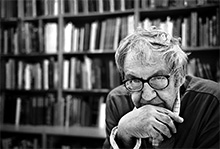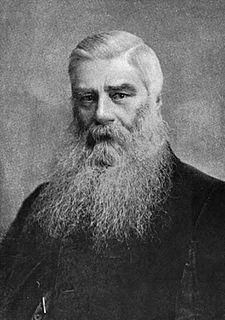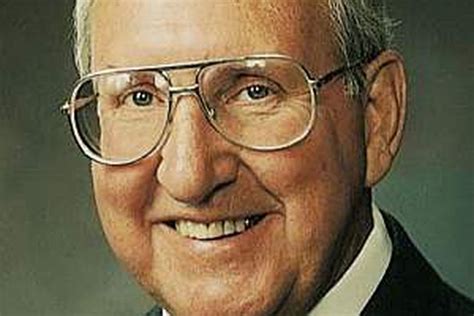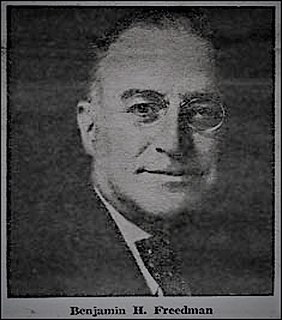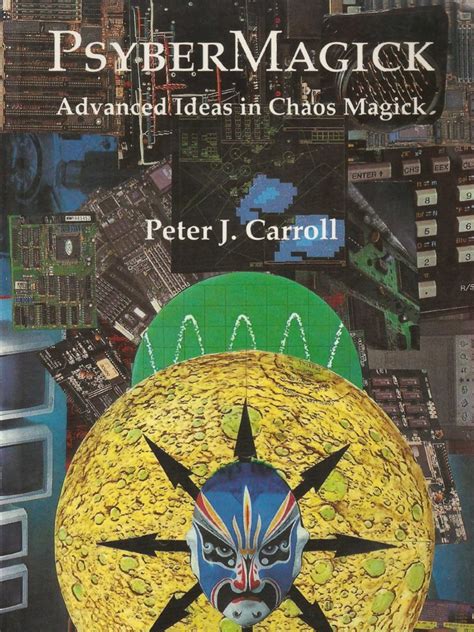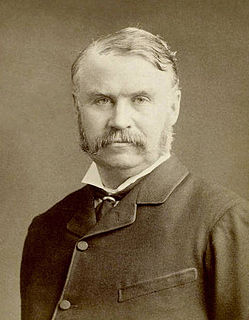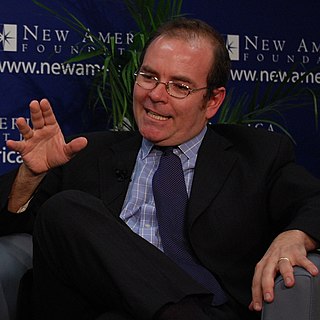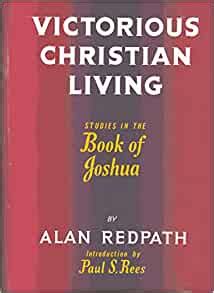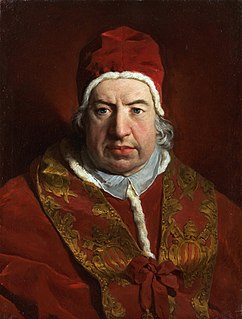Top 1200 Christian Philosophy Quotes & Sayings - Page 17
Explore popular Christian Philosophy quotes.
Last updated on November 7, 2024.
Jeff Chu's pilgrimage across America to discover his own place as a gay man in the Christian church as well as attitudes about being gay and Christian across denominations is at once timely, smart, poignant, disturbing, inspiring, and maddening. It's essential reading for anyone who cares about the rights of the LGBTQ community to be treated as equal citizens at every level, including the religious-which means it should be essential reading for everybody.
Is a Christian- one who communicates daily with the Creator- to divorce himself from the things God created and intended man to have, and which demonstrate the fact that man has been made in the image of God? In other words, are we who have been made in the image of our creator to be less creative than those who do not know the Creator? The Christian should have more vividly expressed creativity in his daily life.
To be a true hero you must be a true Christian. To sum up then, heroism is largely based on two qualities- truthfulness and unselfishness, a readiness to put one's own pleasures aside for that of others, to be courteous to all, kind to those younger than yourself, helpful to your parents, even if helpfulness demands some slight sacrifice of your own pleasure. . .you must remember that these two qualities are the signs of Christian heroism.
A Christian's first duty is to God. It then follows, as a matter of course, that it is his duty to carry his Christian code to the polls and vote them... If Christians should vote their duty to God at the polls, they would carry every election, and do it with ease... it would bring about a moral revolution that would be incalculably beneficent. It would save the country.
My beloved young friends, determine to serve one another. Opportunities for Christian acts of service do not always come at convenient times. Listen to the spirit when your flesh is weak. For truly the Master said, "Inasmuch as ye have done it unto one of the least of these my brethren, ye have done it unto me" (Matt. 25:40). The blessings are tenfold when we do those good, kindly acts of Christian service when it is inopportune or not convenient.
When we assume God to be a guiding principle well, sure enough, a god is usually characteristic of a certain system of thought or morality. For instance, take the Christian God, the summum bonum: God is love, love being the highest moral principle; and God is spirit, the spirit being the supreme idea of meaning. All our Christian moral concepts derive from such assumptions, and the supreme essence of all of them is what we call God.
The nature of men and of organized society dictates the maintenance in every field of action of the highest and purest standards of justice and of right dealing.... By justice the lawyer generally means the prompt, fair, and open application of impartial rules; but we call ours a Christian civilization, and a Christian conception of justice must be much higher. It must include sympathy and helpfulness and a willingness to forego self-interest in order to promote the welfare, happiness, and contentment of others and of the community as a whole.
y feelings as a Christian points me to my Lord and Savior as a fighter. It points me to the man who once in loneliness, surrounded by a few followers, recognized these Jews for what they were and summoned men to fight against them and who, God's truth! was greatest not as a sufferer but as a fighter. In boundless love as a Christian and as a man I read through the passage which tells us how the Lord at last rose in His might and seized the scourge to drive out of the Temple the brood of vipers and adders.
Why did the consensus of Christian churches not only accept these astonishing views but establish them as the only true form of Christian doctrine? . . . these religious debates - questions of the nature of God, or of Christ - simultaneously bear social and political implications that are crucial to the development of Christianity as an institutional religion. In simplest terms, ideas which bear implications contrary to that development come to be labeled as 'heresy'; ideas which implicitly support it become 'orthodox.'
The Bible is one long story of God meeting our rebellion with His rescue, our sin with His salvation, our guilt with His grace, our badness with His goodness. The overwhelming focus of the Bible is not the work of the redeemed but the work of the Redeemer. Which means that the Bible is not first a recipe for Christian living but a revelation book of Jesus who is the answer to our un-Christian living.
Therefore, when a person refuses to come to Christ it is never just because of lack of evidence or because of intellectual difficulties: at root, he refuses to come because he willingly ignores and rejects the drawing of God's Spirit on his heart. No one in the final analysis really fails to become a Christian because of lack of arguments; he fails to become a Christian because he loves darkness rather than light and wants nothing to do with God.
THE NINETEENTH CENTURY SPREAD OF CHRISTIANITY WAS DUE PRIMARILY TO A NEW BURST OF RELIGIOUS LIFE EMANATING FROM THE CHRISTIAN IMPULSE. . . . NEVER IN ANY CORRESPONDING LENGTH OF TIME HAD THE CHRISTIAN IMPULSE GIVEN RISE TO SO MANY NEW MOVEMENTS. NEVER HAD IT HAD QUITE SO GREAT AN EFFECT UPON WESTERN EUROPEAN PEOPLES. IT WAS FROM THIS ABOUNDING VIGOR THAT THERE ISSUED THE MISSIONARY ENTERPRISE WHICH DURING THE NINETEENTH CENTURY SO AUGMENTED THE NUMERICAL STRENGTH AND THE INFLUENCE OF CHRISTIANITY.
problematic within post-Reformation dogmatics. Is faith something I `do' to earn God's favour, and, if not, what role does it play? Once we release Paul's justification-language from the burden of having to describe `how someone becomes a Christian', however, this is simply no longer a problem. There is no danger of imagining that Christian faith is after all a surrogate `work', let alone a substitute form of moral righteousness. Faith is the badge of covenant membership, not something someone `performs' as a kind of initiation test.
As a newborn baby breathes and cries, so the signs of life in a newborn Christian are faith and repentance, inhaling the love of God and exhaling an initial cry of distress. And at that point what God provides, exactly as for a newborn infant, is the comfort, protection, and nurturing promise of a mother. "If God is our father, the church is our mother." The words are those of the Swiss Reformer John Calvin ... it is as impossible, unnecessary, and undesirable to be a Christian all by yourself as it is to be a newborn baby all by yourself.
We recognize a tree by its fruit, and we ought to be able to recognize a Christian by his action. The fruit of faith should be evident in our lives, for being a Christian is more than making sound professions of faith. It should reveal itself in practical and visible ways. Indeed it is better to keep quiet about our beliefs, and live them out, than to talk eloquently about what we believe, but fail to live by it.
The history of the world for the past several centuries and current events at home and abroad confirm the existence of such a conspiracy (to destroy Christianity and obtain global power). The world-wide net-work of diabolical conspirators implements this plot against the Christian faith while Christians appear to be sound asleep. The Christian clergy appear to be more ignorant or more indifferent about this conspiracy than other Christians ... It seems so sad.
In my view, there was a long period in which analytical philosophy had little to say about ethics. I think their intellectual tools did not do well with it, and analytical philosophy was above all about revolutionizing the philosophical tool box. It was more or less assumed that the Truth about ethics was some form of utilitarianism (perhaps because some consequentialist calculus looked to them like a respectable tool). Kantian ethics was then interpreted as a particularly odious version of the False - "deontology" - and treated with contempt.
Such then in number and importance are the precious ties belonging to the Christian name which keep a believer in the Catholic Church, as it is right they should ... With you, where there is none of these things to attract or keep me... No one shall move me from the faith which binds my mind with ties so many and so strong to the Christian religion... For my part, I should not believe the gospel except as moved by the authority of the Catholic Church.
Apart from it, the incarnation and the ministry would lose all their significance, the crucifixion would be but a martyrdom, and the cross a symbol of the victory of death over life. By the Resurrection it was that the Crucified One was "declared to be the Son of God with power," the great truth on which the Christian's faith is founded, and to which his hope is anchored. That Christ died for our sins is the Gospel of the Christian religion regarded as a human cult. The Gospel of Christianity goes on to declare "That He rose again the third day according to the Scriptures"
Q. What is your view of the daily discipline of the Christian life - the need for taking time to be alone with God? Lewis: "We have our New Testament regimental orders upon the subject. I would take it for granted that everyone who becomes a Christian would undertake this practice. It is enjoined upon us by Our Lord; and since they are his commands, I believe in following them. It is always just possible that Jesus Christ meant what he said when He told us to seek the secret place and to close the door.
Many people entertain the idea that Christianity,like almost any other religion,is basically a system of beliefs-you know, a set of doctrines or a code of behavior, a philosophy, an ideology. But that's a myth. Christianity is not at all like Buddhism or Islam or Confucianism. The founders of those religions said (in effect), 'Here is what I teach. Believe my teachings. Follow my philosophy.' Jesus said, 'Follow me'(Matthew 9:9). Leaders of the world's religions said, 'What do you think about what I teach?' Jesus said, 'Who do you say I am?'(Luke 9:20)
If one believes philosophers, then what we call religion is only a deliberately popularized or an instinctively artless philosophy. Poets seem to consider religion rather as a variation of poetry which by misjudging its proper beautiful game takes itself too seriously and one-sidedly. Philosophy, however, admits and recognizes that it can begin and complete itself only with religion. Poetry seeks only to strive for the infinite and despises worldly utility and culture, which are the true antitheses of religion. Eternal peace among artists is thus not far away.
One of the marks of a certain type of bad man is that he cannot give up a thing himself without wanting every one else to give it up. That is not the Christian way. An individual Christian may see fit to give up all sorts of things for special reasons--marriage, or meat, or beer, or the cinema; but the moment he starts saying the things are bad in themselves, or looking down his nose at other people who do use them, he has taken the wrong turning.
An imbecile habit has arisen in modern controversy of saying that such and such a creed can be held in one age but cannot be held in another. Some dogma, we are told, was credible in the twelfth century, but is not credible in the twentieth. You might as well say that a certain philosophy can be believed on Mondays, but cannot be believed on Tuesdays. You might as well say of a view of the cosmos that it was suitable to half-past three, but not suitable to half-past four. What a man can believe depends upon his philosophy, not upon the clock or the century.
The Christian view that all intercourse outside marriage is immoral was, as we see in the above passages from St. Paul, based upon the view that all sexual intercourse, even within marriage, is regrettable. A view of this sort, which goes against biological facts, can only be regarded by sane people as a morbid aberration. The fact that it is embedded in Christian ethics has made Christianity throughout its whole history a force tending towards mental disorders and unwholesome views of life.
I think it's important to realise that what happens in Neo-Platonism beginning with Plotinus and Porphyry and then going on for the next several centuries, is a real kind of contest for the ideas and convictions of the intelligentsia of the later Roman Empire. So that you have Christians slowly converting more and more powerful people until of course actually Constantine and then other emperors after him, become Christian, and the empire becomes a Christian empire rather than Pagan empire.
The Federalist Society is this conservative legal organization. And I think, for the Bush administration, being a member of the Federalist Society meant you were - a reliable, ideological, partisan Republican. It wasn't enough just to be registered as a Republican, or to be - have a generally conservative judicial philosophy, or prosecutorial philosophy. It meant that, basically, meant that you were a real movement conservative, a Party regular. That's what being a Federalist Society member means.
Deep down in the Christian's life, always and all the time, there is to be a "no" to every demand that the flesh may make for recognition, and every demand that the flesh may make for approval, and every demand that the flesh may make for vindication. Always the Christian must bear about in his body the marks of the Lord Jesus.
Our understanding of early Christian beginnings is usually monolithic. It is much determined by the Acts of the Apostles, which pictures a straightforward development from the primitive community in Jerusalem founded on Pentecost to the world-wide mission of Paul climaxing with his arrival in Rome, the political centre of the Greco-Roman world. The Pauline epistles are understood not so much as historical sources reflecting a much more multifaceted early Christian situation fraught with tensions but as theological treatises expounding and defending the doctrine of justification by faith.
The observance of Lent is the very badge of Christian warfare. By it we prove ourselves not to be enemies of Christ. By it we avert the scourges of divine justice. By it we gain strength against the princes of darkness, for it shields us with heavenly help. Should men grow remiss in their observance of Lent, it would be a detriment to God’s glory, a disgrace to the Catholic religion, and a danger to Christian souls. Neither can it be doubted that such negligence would become the source of misery to the world, of public calamity, and of private woe.
This is the personal side of things. When I started going through some of those transitions in my mind, just as a human being versus as an artist, I tried to... Essentially, I did this thing called Landmark Forum. It's three days of mind-expanding, existential philosophy, like Jean-Paul Sartre for everyday living. In existential philosophy they talk about "Being and Nothingness," this idea of not putting meaning onto things, and that in that way you live more purely. In other words, we form reality from these stories that we make up about our lives.
The Christian life is stamped by 'moral spontaneous originality,' consequently the disciple is open to the same charge that Jesus Christ was, viz., that of inconsistency. But Jesus Christ was always consistent to God, and the Christian must be consistent to the life of the Son of God in him, not consistent to hard and fast creeds. Men pour themselves into creeds, and God has to blast them out of their prejudices before they can become devoted to Jesus Christ.
There are no unique postures and times and limitations that restrict our access to God. My relationship with God is intimate and personal. The Christian does not go to the temple to worship. The Christian takes the temple with him or her. Jesus lifts us beyond the building and pays the human body the highest compliment by making it His dwelling place, the place where He meets with us. Even today He would overturn the tables of those who make it a marketplace for their own lust, greed and wealth.
Philosophy, for Plato, is a kind of vision, the 'vision of truth'...Everyone who has done any kind of creative work has experienced, in a greater or less degree, the state of mind in which, after long labour, truth or beauty appears, or seems to appear, in a sudden glory - it may only be about some small matter, or it may be about the universe. I think that most of the best creative work, in art, in science, in literature, and in philosophy, has been a result of just such a moment.
The sublime can only be found in the great subjects. Poetry, history and philosophy all have the same object, and a very great object-Man and Nature. Philosophy describes and depicts Nature. Poetry paints and embellishes it. It also paints men, it aggrandizes them, it exaggerates them, it creates heroes and gods. History only depicts man, and paints him such as he is.
In every Christian's Heart, there is a cross and a throne, and the Christian is on the throne till he puts himself on the cross; if he refuses the cross, he remains on the throne. Perhaps this is at the bottom of the backsliding and worldliness among Gospel believers today. We want to be saved, but we insist that Christ do all the dying. No cross for us, no dethronement, no dying. We remain king within the little kingdom of man's soul and wear our tinsel crown with all the pride of a caesar; but we doom ourselves to shadows and weakness and spiritual sterility.
Christian love is the only kind of love in which there is no rivalry, no jealousy. There is jealousy among the lovers of art; there is jealousy among the lovers of song; there is jealousy among the lovers of beauty. The glory of natural love is its monopoly, its power to say, 'It is mine. ' But the glory of Christian love is its refusal of monopoly.
